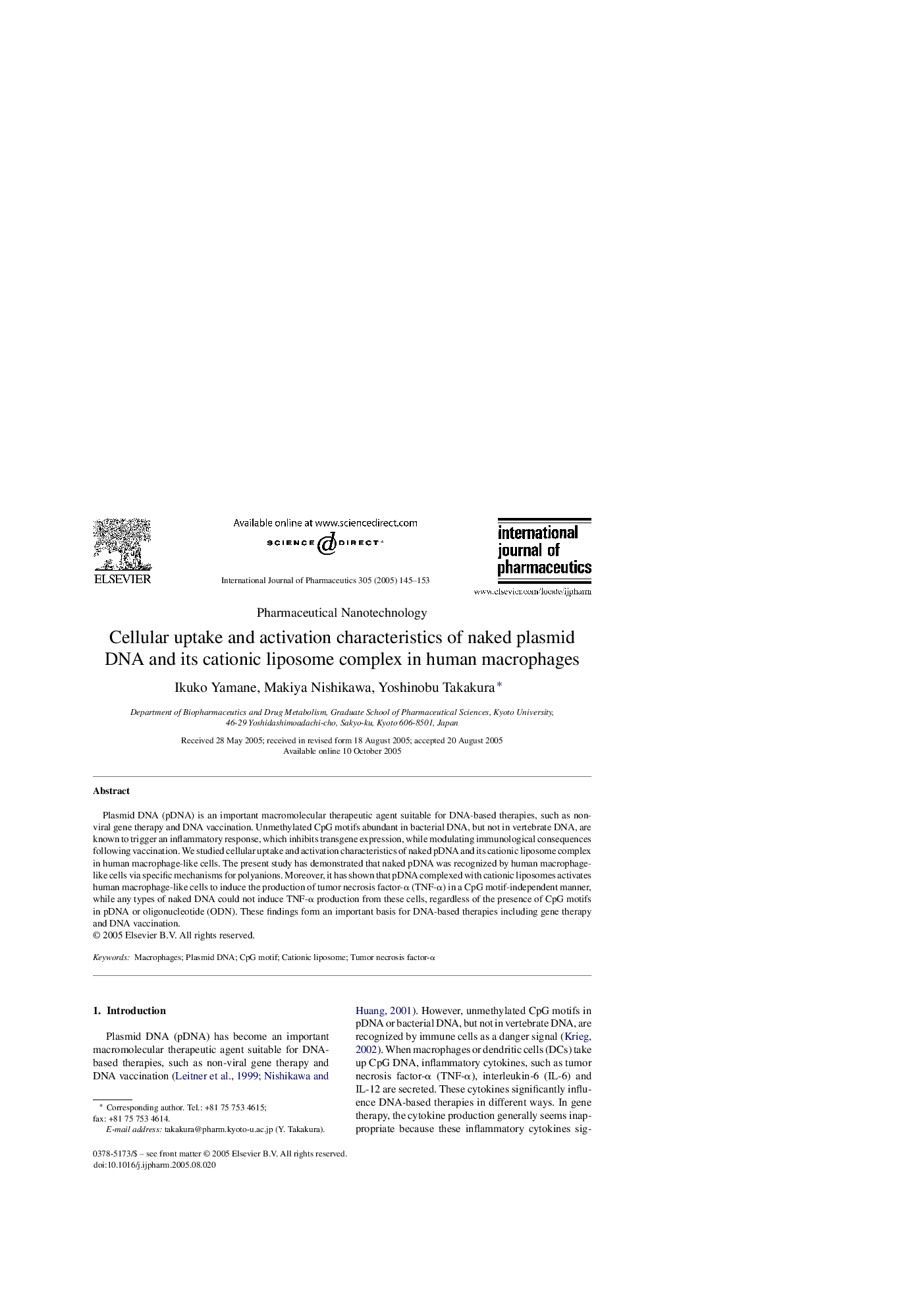| Article ID | Journal | Published Year | Pages | File Type |
|---|---|---|---|---|
| 9918559 | International Journal of Pharmaceutics | 2005 | 9 Pages |
Abstract
Plasmid DNA (pDNA) is an important macromolecular therapeutic agent suitable for DNA-based therapies, such as non-viral gene therapy and DNA vaccination. Unmethylated CpG motifs abundant in bacterial DNA, but not in vertebrate DNA, are known to trigger an inflammatory response, which inhibits transgene expression, while modulating immunological consequences following vaccination. We studied cellular uptake and activation characteristics of naked pDNA and its cationic liposome complex in human macrophage-like cells. The present study has demonstrated that naked pDNA was recognized by human macrophage-like cells via specific mechanisms for polyanions. Moreover, it has shown that pDNA complexed with cationic liposomes activates human macrophage-like cells to induce the production of tumor necrosis factor-α (TNF-α) in a CpG motif-independent manner, while any types of naked DNA could not induce TNF-α production from these cells, regardless of the presence of CpG motifs in pDNA or oligonucleotide (ODN). These findings form an important basis for DNA-based therapies including gene therapy and DNA vaccination.
Related Topics
Health Sciences
Pharmacology, Toxicology and Pharmaceutical Science
Pharmaceutical Science
Authors
Ikuko Yamane, Makiya Nishikawa, Yoshinobu Takakura,
